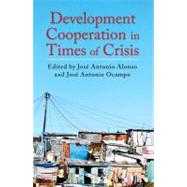- ISBN: 9780231159661 | 0231159668
- Cover: Hardcover
- Copyright: 8/7/2012
Leading governments undertook extraordinary measures to offset the 2008 economic crisis, shoring up financial institutions, stimulating demand to reverse recession, and rebalancing budgets to alleviate sovereign debt. While productive in and of themselves, these solutions were effective because they were coordinated internationally and were matched with sweeping global financial reforms. Unfortunately, since they operate outside of such networks, developing countries failed to benefit equally from these initiatives, and they continue to struggle with the high cost of imports and unprecedented poverty and political unrest. Urging developed nations to grab hold of a unique opportunity and improve their support system for ailing nations, the contributors to this volume revisit the causes of the 2008 collapse and the ongoing effects of recession on global and developing economies. They reevaluate the international response to crisis and suggest more effective approaches to aid, particularly ones that fit the new financial architecture now taking shape across the globe. Experts on international aid and members of the European Union come together to redesign the cooperation system and its governance, so it can accept new actors and better achieve the Millennial Development Goals of 2015 within the context of severe crisis. In the introduction, José Antonio Ocampo and José Antonio Alonso summarize the contents of the different chapters and the implications of their analyses. They conclude with a frank assessment of the imbalances in the global economy and how increased cooperation can rectify these inequalities.






